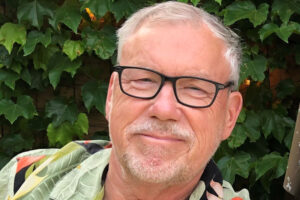10 Top Colleges for Recovery — And Sober Adventure
Recovery residences, specialized counselors, sub-free tailgates and … sober study abroad?! The sober college experience today is better than ever. These universities are showing the way

College is tough for people in recovery, and not just for the obvious reasons. Sure, the “college experience” of pinballing from keggers to hangovers to all-nighters is alive, but it has never been universal. More troubling is the woeful lack of mental health resources at many universities, including big names with deep pockets, where stress, distress, substance misuse, trauma and mental illness have long been realities. But on some campuses today, real change is happening.
That’s why if you’re heading to higher ed while in recovery — or transferring colleges, or sending an adult child in recovery to college — it’s essential to know which universities have invested in making the college journey and the recovery journey not just realistic but rewarding. And in truth, there’s never been a better time to be in recovery in college: The Association of Recovery in Higher Education now counts 144 American universities with dedicated collegiate recovery programs (CRPs) or communities (CRCs) as members. (Learn more about CRPs and their history.)
Many schools with robust recovery programs now offer students the services of licensed addiction specialists and recovery counselors, mutual-aid support group meetings (12-step, peer-to-peer and others) and, perhaps most importantly, communities of students in recovery who host active sober social scenes. A growing number of universities also provide more comprehensive arrangements and immersive experiences, like recovery-oriented sober residences, dedicated sober lounge and dining spaces, scholarships for students in recovery, academic support, career counseling and even sober study abroad.
So whether you’re looking for a place that’s snowy or sunny, small or big, public or private, city or country, let this list be your guide to what’s out there, and what to expect.
Augsburg University, Minneapolis, Minnesota

Despite Augsburg’s intimate size (around 2,500 students enrolled), the Minnesota college’s StepUp recovery program predates most CRPs, launching in 1997, and StepUp alumni now number more than 800. Augsburg’s substantial recovery community is a major plus: The on-campus sober residence hall houses more than 100 students on three floors, with plenty of spaces to study, cook and hang out. Augsburg also provides weekly counseling with licensed recovery professionals, as well as weekly sober community meetings. Students get together for activities ranging from game-day parties to canoeing trips to an annual fundraising gala: The program costs students nothing beyond university tuition, room and board.
Brown University, Providence, Rhode Island

Yes, it’s possible to go the Ivy League route in recovery. Brown’s Donovan Program (named for a professor who began helping students connect with recovery resources in the 1970s) is headed by a dean of recovery and substance-free student initiatives and encompasses on-campus student support groups, a substance-free program house, and student-led sober social groups for undergrads and grad students.
The SoBear Activities Club organizes karaoke nights, arts and crafts workshops, and weekend retreats, all free to attendees. Clinical mental health services are available, and budding recovery scholars can attend lectures at Brown’s Center for Alcohol and Addiction Studies, or peruse the library’s Alcohol and Addiction Studies Collections, which house current research and historical materials on addiction treatment, temperance movements, Alcoholics Anonymous and more.
University of Colorado, Boulder, Colorado

Boulder is a dream location for all stripes of students, with no shortage of activities for those pursuing sobriety and serenity. Add to that the school’s suite of recovery resources and strong community, and it’s an ideal choice. The CU Collegiate Recovery Community (CUCRC) connects students with mental health services and peer support, as well as an array of mutual-aid support group meetings on and off campus. There’s also a recovery apartment complex and CRC lounge.
The on-campus community goes camping in the mountains and hosts substance-free tailgates, while the greater Boulder/Denver area is also home to a vigorous outdoorsy sober community. The Phoenix, a nationwide recovery-and-fitness organization, is headquartered here and runs activities daily: CrossFit, yoga, cycling, climbing, mountain biking and more.
Fairfield University, Fairfield, Connecticut

A small university near the Big Apple, Fairfield has provided a Collegiate Recovery Program to students for some years now, with its first recovery housing opening a decade ago. The school combines student-led activities and community with the structure of a dedicated, licensed staff of counselors, clinicians and mentors, some with decades of experience in recovery support fields. Along with sober housing and psychiatric services, Fairfield’s program includes group meetings, a recovery lounge, academic counseling, career counseling, dinners, paintball, go-karting and even a sober intramural basketball squad.
Rutgers University, New Brunswick, New Jersey

The main campus of Rutgers is home to the Alcohol & Other Drug Assistance Program (ADAP). ADAP combats addiction at all stages, from online drug and alcohol use assessments to the Rutgers Recovery House, an on-campus sober-living residence recently remodeled and expanded to house 40 students. (Rutgers has been doing recovery for a long time: A sober hall opened in 1988.) Group and individual therapy from licensed psychiatric professionals and social workers is an option for all students; a more intensive treatment plan involves individual case management, as well as therapy routines ranging from DBT to yoga. ADAP and the Recovery House provide academic and career support, and organize special events like an annual spring break trip and sober holiday parties.
Saint Joseph’s University, Philadelphia, Pennsylvania

The Philadelphia university is a relative newcomer to the forefront of the CRP scene, but Saint Joseph’s is making major commitments to recovery on campus — and across the region. In 2021, it opened a recovery-oriented sober residence hall on campus, two years after launching its research- and education-based Center for Addiction Recovery and Education.
The school offers students in recovery individualized treatment plans, peer mentoring and counseling from licensed addiction specialists, while the student recovery community, called the Flock, and the residence hall organize programming and social events. A conference on recovery is held every year; the 2023 theme was “Transforming Student Support: Best Practices in Collegiate Recovery.”
University of Southern California, Los Angeles, California

Sobriety, you may have heard, is the hot new thing, even — especially? — in L.A. USC has university-affiliated mental health services, but its most active recovery programs have been started in recent years either by alums or in collaboration with the university.
The Haven at College operates an outpatient treatment center on campus, with a range of programs covering intensive outpatient care, co-occurring disorders, case management, peer-to-peer support, family therapy and more. (There’s also a Haven program and recovery residence at Tufts University in Medford, Massachusetts.) Academics Anonymous, founded by USC alums, provides recovery-oriented sober housing, academic coaching, aftercare services and community activities like beach days and museum trips. Notably, both programs are open not only to USC students, but all college students in the Los Angeles area.
Texas Tech University, Lubbock, Texas

The Center for Collegiate Recovery Communities (CCRC) was born from an addiction studies program at Texas Tech way back in 1986, and it continues to be among the most comprehensive CRCs in the U.S. The program offers sober housing, counseling from licensed staff, peer support, on-campus recovery group meetings, more than 120 scholarships per year, and sober study and recreation areas.
An expansive suite of community programs and activities makes Texas Tech stand out: In addition to social lunches, trips and sober tailgates, there are the service-oriented student organizations POWER (for outreach to underrepresented individuals in or seeking recovery) and ASAS (for organizing on- and off-campus events to promote mental health and recovery awareness). Texas Tech even offers a study abroad program focusing on addiction and recovery scholarship, in Prague, Czech Republic.
University of Vermont, Burlington, Vermont

The Catamount Recovery Program at UVM’s picturesque Burlington campus is built on its five pillars of recovery in college: recovery, community, academics, self-care and advocacy. To that end, the program offers mental health counseling for students in recovery, academic support, recovery group therapy, on-campus recovery-oriented sober housing and the CRP Lounge, a 24/7 sober gathering space for studying, snacking, ping-pong and support services. Regular community activities include New England favorites like apple-picking and moonlight hikes.
“It made a huge difference to know that other students in recovery were there for me at any time, no matter what,” said one student member.
Virginia Commonwealth University, Richmond, Virginia

With hikes, writing workshops, waffle brunches and improv nights, there’s rarely a dull day in VCU’s Rams in Recovery program. The CRP provides counseling and recovery support services, a Recovery Clubhouse where support group meetings are held daily and socializing comes easy, recovery-oriented sober housing, scholarships, recovery ally training, a family education program, and an annual multi-day “From Research to Recovery” academic conference that students help coordinate.
Best of the Rest
You or a loved one may, of course, find a fulfilling life in recovery at a number of other universities as well. Some may not have every element of the most established CRPs, but collegiate recovery is a relatively new proposition, and some of the most enthusiastic communities and organizations are also among the newest, often spearheaded by students in recovery themselves. Other university programs may have been disrupted by the pandemic but are now getting back on track.
Along with the above notables, consider Methodist University; the University of Miami; the University of Nevada, Reno; Wake Forest University; the University of North Carolina at Chapel Hill; Arizona State University; Georgia Southern University; Tufts University; the University of Wisconsin–Milwaukee; the University of Nebraska–Lincoln; Boston University; and many more on the rise. Contact them to find out more about the best four years of your life.
More Relaunch
I'm in Recovery and Ready To Work. What Do I Need To Know?
A job can bring serious benefits to your recovery, even beyond the financial ones. But it can also test you. If you understand a few things going in — or going back — you'll be golden.
Subs & Drugs & Rock & Roll, Part 3: 'I'm a Loser (And I'm Not What I Appear To Be)'
Don Fertman reaches bottom as the jelly donut hits the wall. The latest installment of the longtime Subway exec's memoir.
Subs & Drugs & Rock & Roll, Part 2: A Day in the Life
Don Fertman woke up one morning 40 years ago and poured himself a drink, as usual. But the future Subway exec didn't know this day would be far from ordinary.
Subs & Drugs & Rock & Roll, Part 1: With a Little Help From My Friends
Don Fertman, longtime Subway exec, writes about a pivotal moment in his 40 years of sobriety: what happened after he went public about his recovery on "Undercover Boss."
Here's How To Make the Office Holiday Party Recovery-Friendly
Four ways to make your holiday party more inviting to employees who are in recovery, according to the Society for Human Resource Management.
How Can I Be a Sober Ally in the Workplace?
You're not in addiction recovery, but you want to show up for people who are. Great! Here's what that looks like at the office.
Is Alcohol Big in Your Work Culture? Here's How To Sidestep — Or Talk About It
The "Mad Men" era may be over, but some workplaces can still be particularly challenging in recovery. Some pointers on putting your sobriety first.
Your Guide To Hanging Out and Making Friends in College — Sober
Doing college sans drugs and alcohol doesn't have to be a struggle. Some tips on making bonds that'll last and having a blast.











